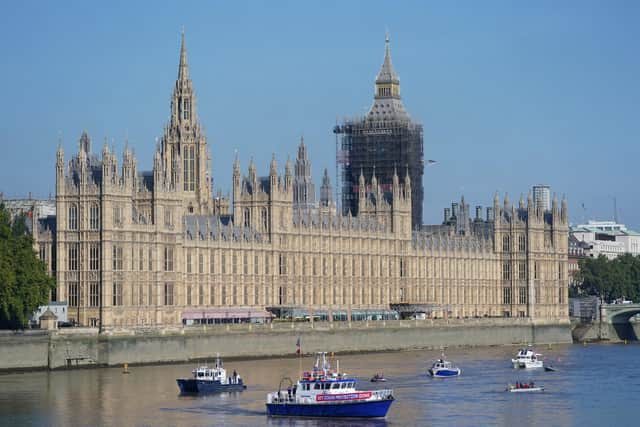Every victim of banking misconduct should be treated equally as they fight for justice - Greg Wright
From 2001 onwards, a number of major banks mis-sold complex financial products to their small business customers, which caused misery for entrepreneurs who were often burning the midnight oil just to survive.
By 2013, it was estimated that thousands of businesses had suffered hardship after being mis-sold these products, often by salesmen who were handsomely rewarded.
Advertisement
Hide AdAdvertisement
Hide AdThe Financial Conduct Authority has accepted recommendations made by John Swift QC, who was commissioned to review the design, implementation and operation of the redress scheme set up for customers who were mis-sold interest rate hedging products (IRHPs) from 2001.


In the simplest terms, an IRHP is a financial instrument which enables customers to manage, or ‘hedge’, their exposure to fluctuating interest rates.
The report provides plenty of food for thought.
To quote Mr Swift’s review: “Absent cogent and well-evidenced reasons, the FSA (the forerunner of the FCA, which was scrapped in 2013) should not treat persons within the same class differently – but that was effectively what it did.”
The review concludes that the scheme excluded about one-third of all private customers or retail clients with IRHPs, limiting those entitled to benefit from it to ‘non-sophisticated’ customers or clients. Others were left to pursue compensation through the banks’ complaints processes or the courts, even though the regulatory requirements were the same for all customers within the class, according to Mr Swift.
Advertisement
Hide AdAdvertisement
Hide AdLater in the report, Mr Swift states: “There was some evidence that HMT (the Treasury) sought to influence the FSA in connection with the likely cost of the scheme to the banks.
“Despite this, the evidence suggests that the creation and development of the scheme remained under the control of the FSA/FCA, and that its decisions were those of an independent body.”
However, in order to protect “the practice and public perception of the system of independent regulation”, both the executive and the regulator have to be keenly alert to ensuring the FCA’s independence is maintained and seen to be maintained at all times, said Mr Swift.
“This applies especially where HMT has a direct financial interest in the outcome of decisions taken by the FCA.
Advertisement
Hide AdAdvertisement
Hide Ad“In practice, the FCA should be cautious as to the way in which it engages with HMT, and the Government more generally, in the context of decision-making on individual interventions, including by ensuring a fair, balanced and transparent route for access and representations by all stakeholders.”
The All Party Parliamentary Group on Fair Business Banking was dismayed by the review’s contents, stating on Twitter: “John Swift QC effectively says it was wrong to exclude 33% of all claimants without objective justification, which we agree with. Disappointing to see the FCA do not agree.”
There’s no denying that the actions taken by the FSA nearly a decade ago delivered redress of £2.2 billion to thousands of small businesses who desperately needed it.
The FCA said it welcomed the review’s finding that most customers eligible for the scheme “in all likelihood “obtained better outcomes than could have been achieved outside of it.
Advertisement
Hide AdAdvertisement
Hide AdThe FCA admitted there had been clear failings in processes, governance and record keeping when decisions about the redress scheme were made, and a lack of transparency.
Despite this, the FCA does not believe that the FSA was wrong to limit the scope of the redress scheme to less sophisticated customers and has concluded that it would not be appropriate to take further action. Charles Randell, chair of the FCA, stressed that the FCA is a very different organisation from the FSA. The FCA would be expected to act more swiftly and decisively when faced with this issue today.
An HM Treasury spokesperson said:“Any mis-selling of financial products is completely unacceptable and wrong, which is why we supported the independent FCA’s redress scheme and are confident that it brought closure to the issue.
“Our focus throughout the review process was to ensure fair and reasonable redress was provided to business who were rightly entitled to it as quickly as possible. While we helped to facilitate conversations to reach agreement on the scheme in a timely manner, the FCA was responsible for the operational design of the scheme and maintained its independence throughout, something which the report confirms.”
The MPs should still demand an explanation as to why this important redress scheme excluded about one-third of all claimants. Every victim of mis-selling is entitled to a level playing field.
Comment Guidelines
National World encourages reader discussion on our stories. User feedback, insights and back-and-forth exchanges add a rich layer of context to reporting. Please review our Community Guidelines before commenting.
